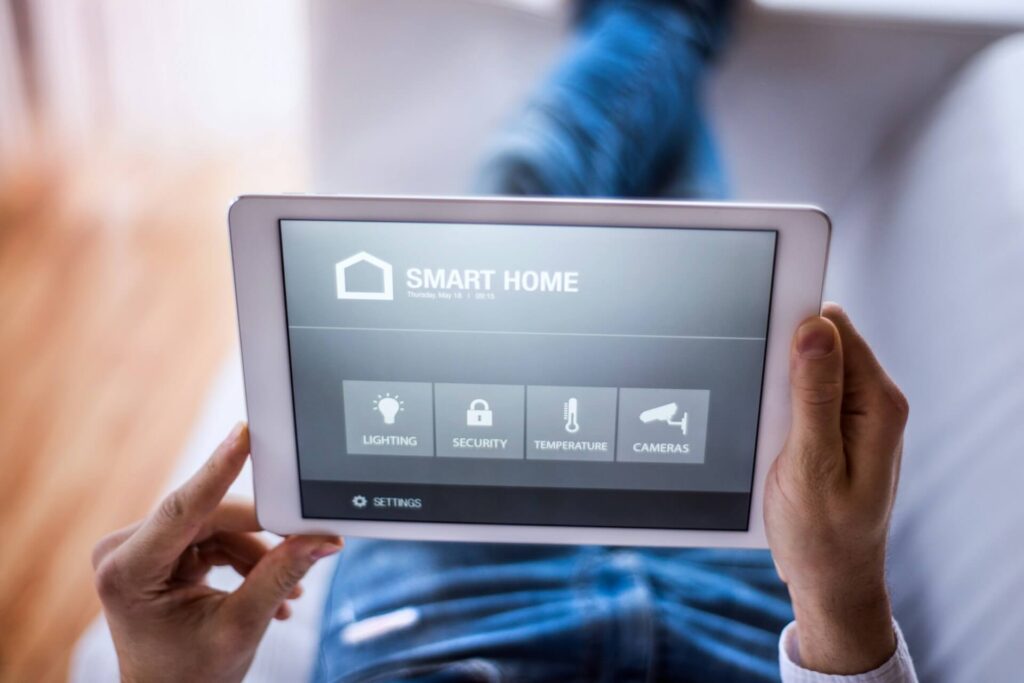Smart home technologies are irreversibly changing the way we live and interact with our living spaces. Their growing popularity opens entirely new opportunities for marketers, enabling tailored messaging that aligns with the individual needs and daily behaviours of users. In this article, we explore the most significant trends, tools, and challenges in marketing within the smart home ecosystem.

Table of Contents
Introduction to Smart Home Technologies
Smart home technologies have gained increasing popularity over the past few years, becoming an integral part of modern lifestyles. These solutions include systems that enable remote control of lighting, heating, or security, as well as integration with voice assistants. This allows residents to fully personalize their environment, enhance comfort, and reduce home operating costs.
Smart devices not only streamline daily activities but also generate massive amounts of data about user behaviors, preferences, and needs. This data is extremely valuable for marketers, offering them the chance to develop entirely new communication models with consumers. Consequently, the importance of marketing tailored to the unique realities of smart homes is on the rise.
Examples of Marketing Applications in Smart Homes
One increasingly common example of utilizing smart home technologies in marketing is personalized product recommendations. Smart speakers and voice assistants, such as Amazon Alexa or Google Assistant, can suggest groceries or cleaning supplies based on an analysis of previous spending and household needs.
Another area of marketing activity involves integrating advertising campaigns with smart displays and televisions. This enables companies to present personalized content tailored to user preferences and circumstances at a specific moment – for instance, recommending recipes during cooking or suggesting fitness products during morning exercise.
Tools for Creating Campaigns for Smart Homes
Marketers are increasingly turning to tools based on artificial intelligence and machine learning, which allow for automated analysis of household behavior patterns. The data collected serves as the foundation for creating personalized advertising messages displayed at the right time on devices integrated into the smart home system.
Using data management platforms (DMPs) makes it possible to segment users in real time according to their activities, shopping preferences, or daily schedules. This ensures that marketing campaigns are highly precise, targeting only those genuinely interested in a specific product or service. As a result, campaign effectiveness improves while the risk of irritating audiences decreases.
Personalizing Experiences in Smart Homes
Personalization is a cornerstone of marketing in smart homes. Modern systems monitor user behaviors and gather information about their lifestyle to automatically adjust temperature, music, or lighting. Similarly, these insights enable the customization of advertising offers.
Marketers, in collaboration with smart home service providers, can create individually tailored product recommendations or educational content that appear in the right context. For example, suggesting air purifier filters when the system detects significant wear and tear. These solutions enhance the comfort of residents while strengthening loyalty to the brand.
The Impact of IoT on Marketing in Smart Homes
The Internet of Things (IoT) plays a pivotal role in developing smart home technologies by connecting diverse devices and enabling seamless data exchange. From a marketing perspective, this means companies can gather information from multiple sources simultaneously, gaining a comprehensive understanding of consumer actions and preferences.
Thanks to IoT, marketers have access to more precise targeting methods and better ways to measure campaign effectiveness. They can also test different approaches in real time, responding to the immediate needs of users. This facilitates the creation of more engaging, personalized messages that increase the likelihood of purchase decisions.
Challenges Related to Smart Home Technologies
Despite the many benefits of using smart home technologies in marketing, companies face significant challenges. These include issues related to data privacy and user information security. Consumers are increasingly concerned about whether their data is being collected and processed in ways that respect privacy or avoid exposure to cyber threats.
Another challenge is ensuring compatibility standards across various devices and smart home platforms. Market fragmentation can make it difficult to conduct cohesive marketing efforts, and companies must invest in developing flexible solutions that work across multiple systems. Additionally, it’s crucial to continuously monitor technological trends and adapt strategies to changing conditions.
The Future of Digital Marketing in Smart Homes
In the coming years, the development of marketing targeting smart home users is expected to accelerate. This is driven not only by the growing popularity of smart home systems but also by advancements in artificial intelligence, enabling even more precise personalization of messages and analysis of consumer behaviours.
At the same time, companies must prioritize transparent data collection practices and clearly communicate the benefits of sharing information about preferences or lifestyle. Only then can they build lasting relationships with customers based on trust and mutual respect. As a result, the future of marketing in smart homes presents a space full of new opportunities, provided marketers and technology providers can meet the expectations of increasingly aware consumers.
Read the article in Polish at: Przyszłość marketingu internetowego w inteligentnych domach
